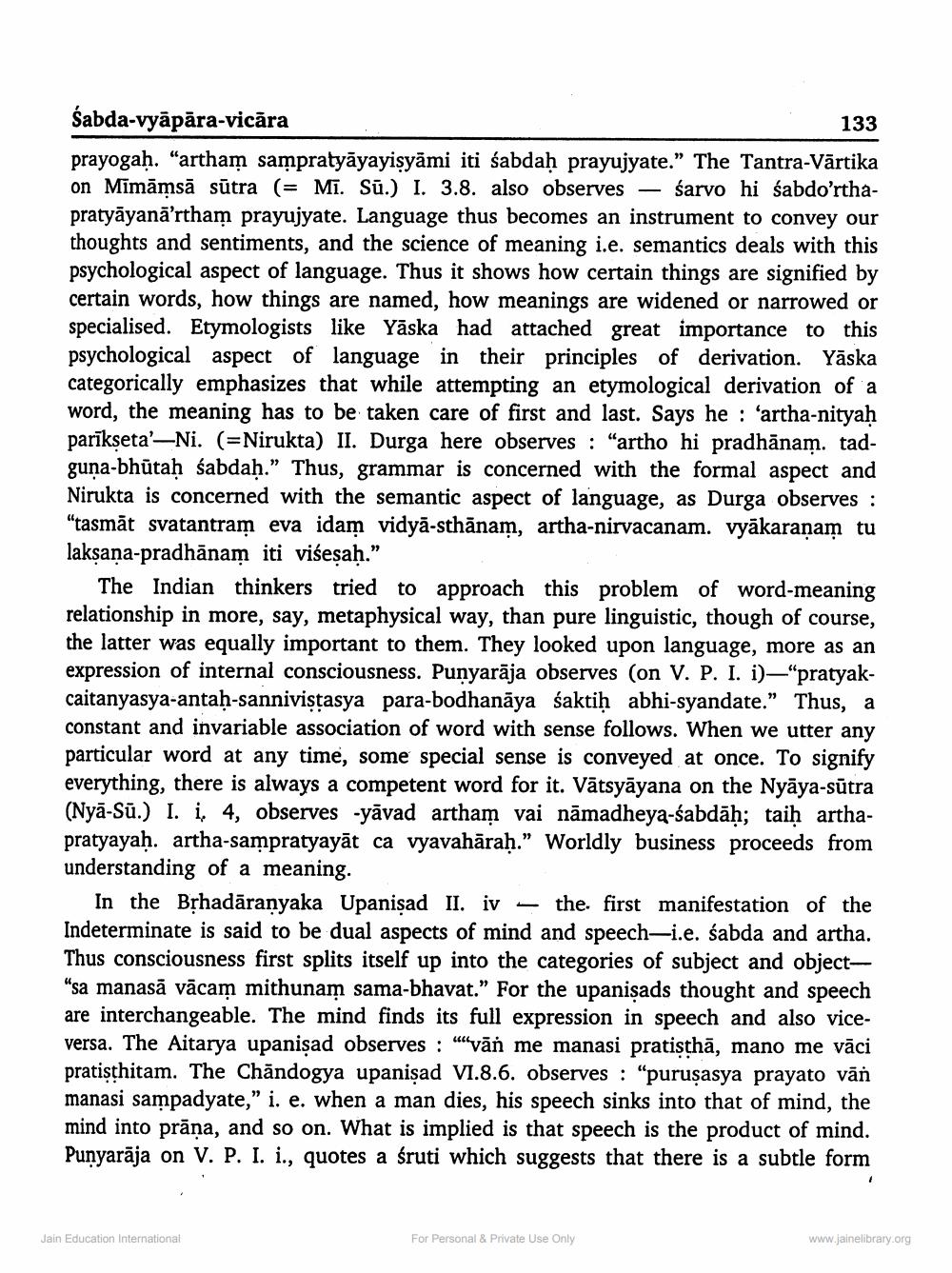________________
Sabda-vyāpāra-vicāra
133
prayogah. "artham sampratyāyayisyāmi iti sabdah prayujyate." The Tantra-Vārtika on Mimāmsā sūtra (= Mī. Sū.) I. 3.8. also observes - śarvo hi śabdo'rthapratyāyanā'rtham prayujyate. Language thus becomes an instrument to convey our thoughts and sentiments, and the science of meaning i.e. semantics deals with this psychological aspect of language. Thus it shows how certain things are signified by certain words, how things are named, how meanings are widened or narrowed or specialised. Etymologists like Yāska had attached great importance to this psychological aspect of language in their principles of derivation. Yāska categorically emphasizes that while attempting an etymological derivation of a word, the meaning has to be taken care of first and last. Says he : 'artha-nityah parīkseta'-Ni. (=Nirukta) II. Durga here observes: "artho hi pradhānam. tadguna-bhūtaḥ śabdaḥ.” Thus, grammar is concerned with the formal aspect and Nirukta is concerned with the semantic aspect of language, as Durga observes : "tasmāt svatantram eva idam vidyā-sthānam, artha-nirvacanam. vyākaranam tu laksana-pradhānam iti višesah."
The Indian thinkers tried to approach this problem of word-meaning relationship in more, say, metaphysical way, than pure linguistic, though of course, the latter was equally important to them. They looked upon language, more as an expression of internal consciousness. Punyarāja observes (on V. P. I. i)—"pratyakcaitanyasya-antah-sannivistasya para-bodhanāya saktih abhi-syandate.” Thus, a constant and invariable association of word with sense follows. When we utter any particular word at any time, some special sense is conveyed at once. To signify everything, there is always a competent word for it. Vātsyāyana on the Nyāya-sūtra (Nyā-Sū.) I. i. 4, observes -yāvad artham vai nāmadheya-sabdāh; taih arthapratyayah. artha-sampratyayāt ca vyavahāraḥ.” Worldly business proceeds from understanding of a meaning.
In the Brhadāranyaka Upanişad II. iv – the first manifestation of the Indeterminate is said to be dual aspects of mind and speech-i.e. sabda and artha. Thus consciousness first splits itself up into the categories of subject and object"sa manasā vācam mithunam sama-bhavat." For the upanişads thought and speech are interchangeable. The mind finds its full expression in speech and also viceversa. The Aitarya upanişad observes : "vān me manasi pratisthā, mano me vāci pratisthitam. The Chandogya upanisad VI.8.6. observes : "puruşasya prayato vān manasi sampadyate,” i. e. when a man dies, his speech sinks into that of mind, the mind into prāņa, and so on. What is implied is that speech is the product of mind. Punyarāja on V. P. I. i., quotes a śruti which suggests that there is a subtle form
Jain Education International
For Personal & Private Use Only
www.jainelibrary.org




